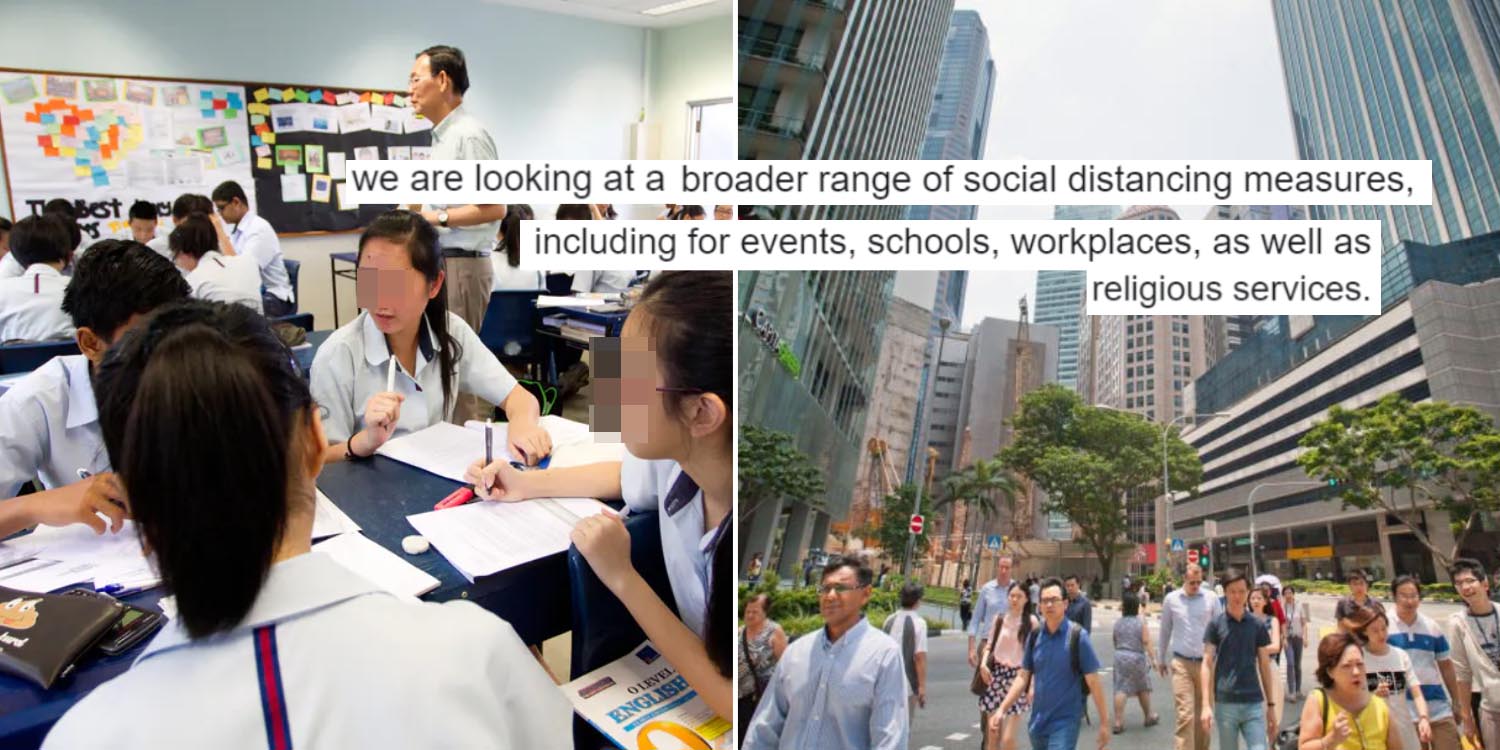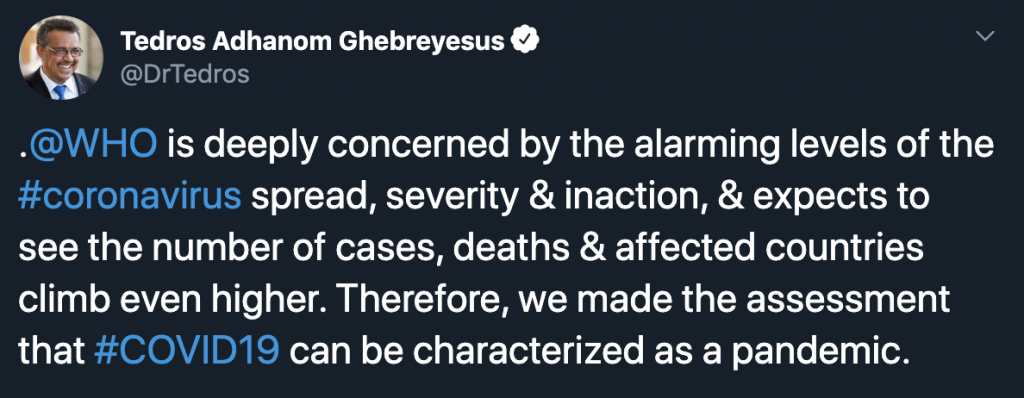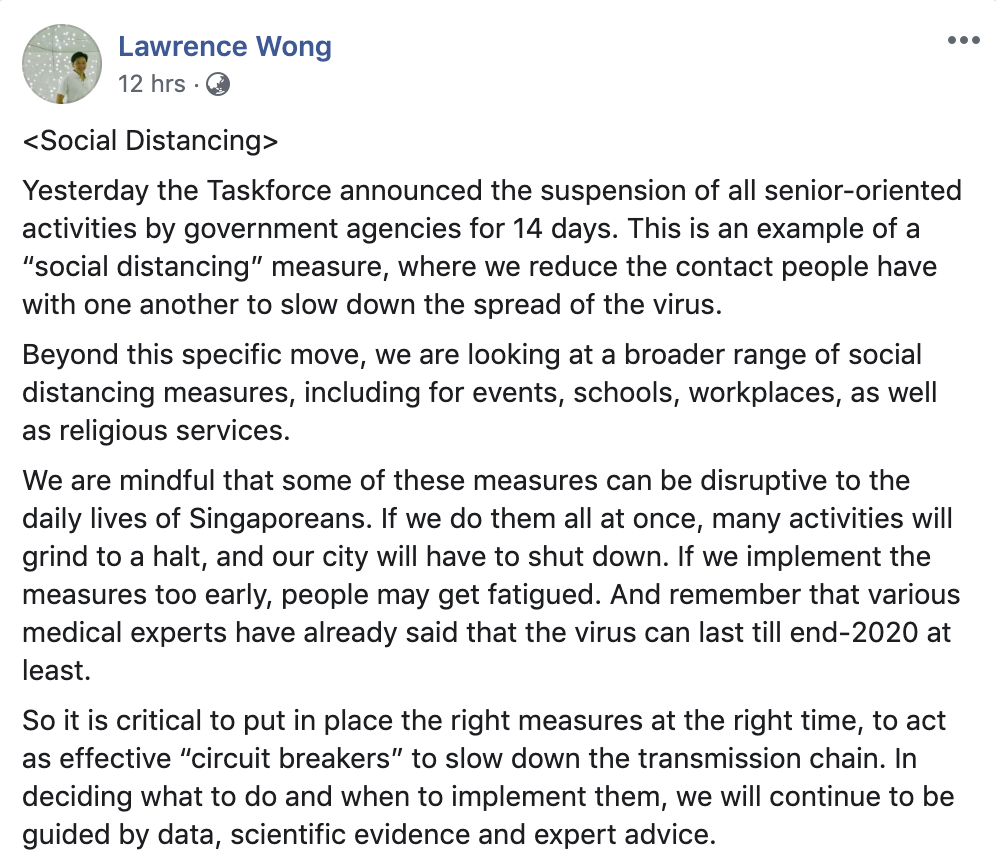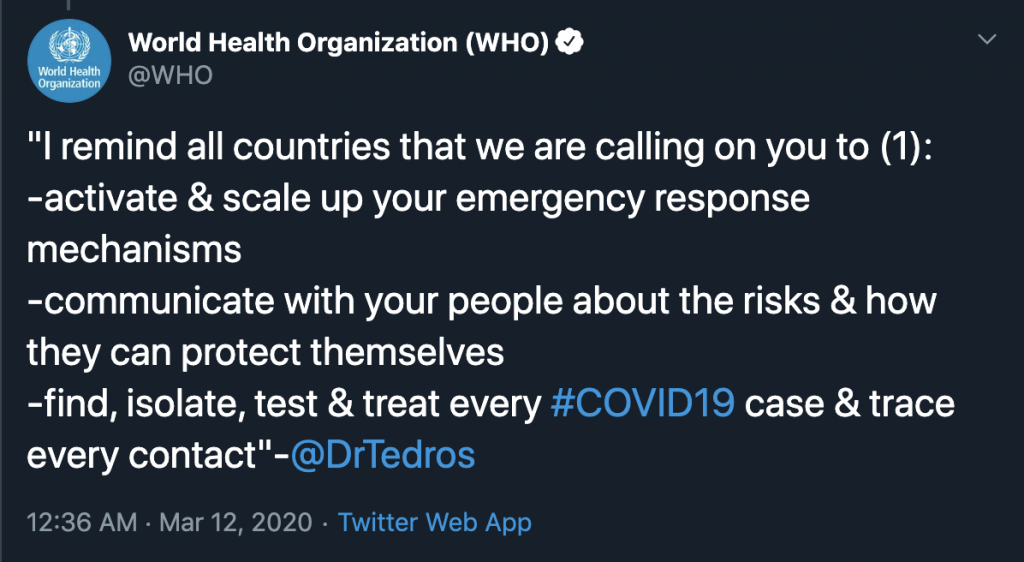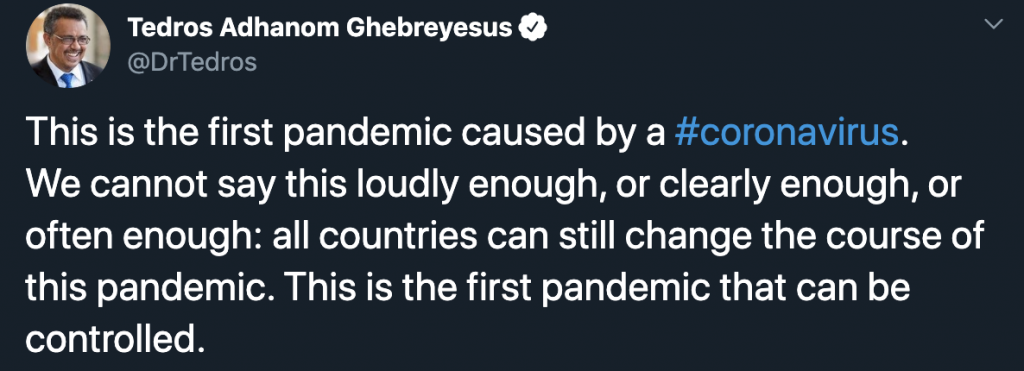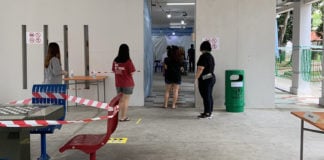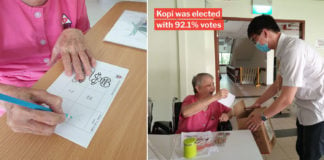WHO Declares Covid-19 A Global Pandemic, Singapore Plans To Up Measures Even Before Announcement
It looks like the experts were right — Covid-19 definitely won’t be going away any time soon. In fact, the situation has spiralled even further, now that World Health Organization (WHO) announced Covid-19 is now a pandemic.
Yesterday (11 Mar), Channel NewsAsia (CNA) reported WHO announced that the global Covid-19 situation had escalated, and it is now considered a pandemic.
Apparently, its “alarming levels of spread and severity” have led the WHO to classify it as such.
With its new status as a pandemic, countries worldwide are expected to step up their precautionary measures, and enforce more stringent ones if necessary.
Singapore planned to up measures before pandemic announced
Singapore hasn’t undertaken measures as dire as Italy’s yet, but we are definitely upping our precautions accordingly.
It seemed like the local situation was dying down as more patients recovered and were discharged. But the sudden surge in numbers due to the SAFRA Jurong cluster reminded us not to be complacent.
Due to the jump in numbers again, more activities were suspended, specifically government-organised activities for seniors, since they’re particularly at risk.
This was the first step in “Social Distancing”, as Minister Lawrence Wong called it in his Facebook post.
According to Mr Wong’s post, social distancing may soon be extended to all age groups, including for:
- Events
- Schools
- Workplaces
- Religious services.
Mr Wong acknowledged that some of these enhanced measures could be disruptive to Singaporeans’ daily lives.
If we do them all at once, many activities will grind to a halt, and our city will have to shut down.
He went on to assure Singaporeans that the measures would be put in place “at the right time”, so that their impact on our lives would be minimal.
WHO “deeply concerned” about Covid-19
At 12.36am today (12 Mar), WHO’s Director General Dr Tedros Adhanom Ghebreyesus told press that the WHO was “deeply concerned” by “alarming levels of inaction”.
After the press conference, both WHO and Dr Tedros took to Twitter to further emphasise their points, calling on countries to up their measures and educate their people about risks better, as well as isolating and testing as many as possible.
Dr Tedros repeatedly highlighted that this pandemic is the first to be caused by a coronavirus.
Since it is not as lethal as previous pandemics like SARS or Ebola, the WHO believes that its spread can still be controlled.
Italy & Iran at forefront of Covid-19
The head of WHO’s emergencies programme said Iran and Italy are now at the forefront of dealing with Covid-19, given that both countries situations have escalated rapidly in just weeks.
CNA reported that the WHO wished to see more action from Iran in surveillance and testing, as well as care for patients and those displaying symptoms.
As of 11 Mar, Iran has over 9,000 confirmed cases and 354 deaths. It has the second most infections and deaths outside of China, trumped by only Italy.
Italy just announced their nationwide lockdown 2 days ago (11 Mar) as their death toll closed in on 500. Today, they have over 10,000 cases and more than 600 deaths.
Entire Italy On Lockdown With Most Covid-19 Cases Outside China, Italians Urged To Change Habits Now
Countries are encouraged to undertake draconian measures like Italy’s lockdown, as it seems like the only way to contain the coronavirus, at this point.
Though it may pose a great inconvenience to many and hinder daily lives, the pandemic must be controlled while it’s still possible to, and countries should heed WHO’s advice to up their measures.
Preparing for more restrictions in our daily lives
Until “the right time” comes, we have to remain vigilant and practise social responsibility for those around us.
Controlling the spread can only be done through the entire nation’s effort, and we all have a part to play in keeping Covid-19 at bay as much as we can.
With the situation continuing to escalate, we have to be prepared for even more precautionary measures.
They will probably be a hassle to deal with, and even pose major inconveniences to our careers or schoolwork, but the country’s well-being is of greater importance.
It’s better to suffer through these measures for a little while, rather than suffer drastically from the after-effects of a Covid-19.
Featured image adapted from The Conversation and The Business Times.
